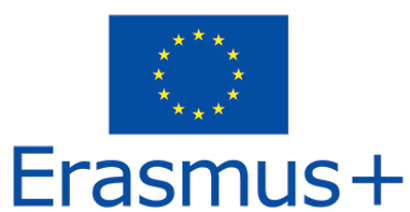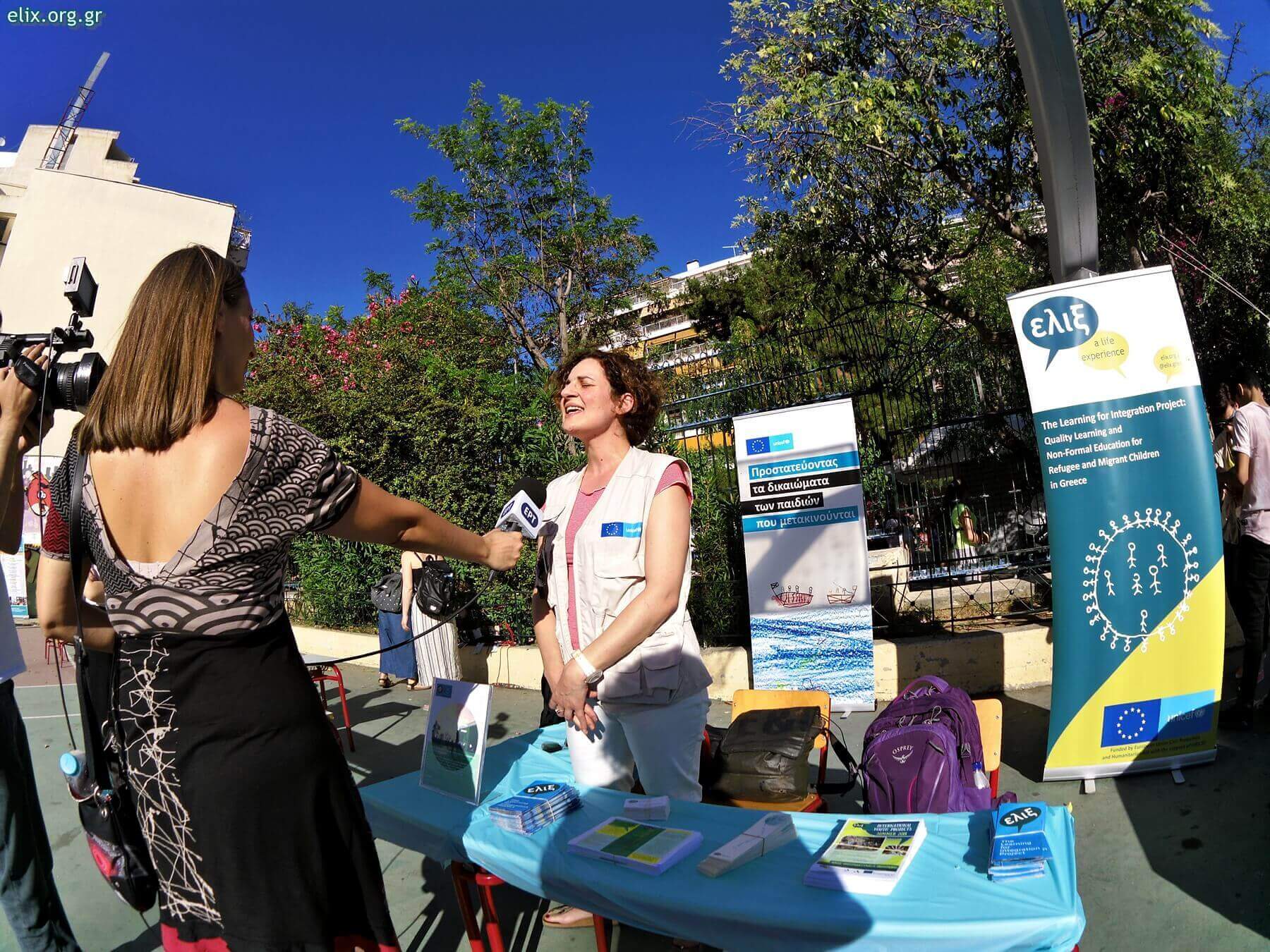In cooperation with the Goethe Institute e.V., ELIX and other stakeholders started the "Your Language Counts!" project, dedicated to supporting the integration and educational success of multilingual students with a heritage language background. In an increasingly diverse Europe, multilingualism is the norm, presenting many opportunities but also challenges for students who must navigate a school system dominated by a language different from their heritage languages.
Our project aim is to contribute to students’ overall academic achievements and foster a sense of belonging through knowledge and therefore pride in their languages.
The term "heritage language" (or “home language”) refers to languages spoken at home, reflecting individual histories, traditions, and cultural identities. This includes students with a refugee or migrant background, heritage language speakers, second or third generation heritage language speakers, and any student with a diverse heritage language background.
Our vision includes the development, testing, and implementation of a Heritage Language Education Model launching in six schools, focusing on the lower secondary years (students aged 12-16), in Finland, the Netherlands and Sweden. The targeted languages include Arabic, Farsi, Russian, Somali, Turkish, Ukrainian, or any other language spoken by students at home.
Anticipated outcomes are the establishment of a shared platform for HL teachers to exchange experiences and materials, an HLT implementation handbook and a roadmap for the effective integration of heritage language teaching in schools. Through this approach, we aim to create a supportive and inclusive educational environment for all multilingual students, promoting linguistic diversity and cultural understanding.
The project is designed for school leaders, heritage language educators, education policymakers, and families from diverse backgrounds to ultimately empower students in their multilingual identity.
Since 2016 ELIX has been implementing non-formal education programmes for refugees and migrants in Greece and has developed a large network of collaborations with Civil Society actors, migrant communities and formal education actors. The ELIX educational team has published and co-written handbooks and guidelines for non-formal education of migrant and refugee children and young people focusing on blended learning, multi-linguistic development and social - emotional empowerment, and Greek as a second language. Thanks to their large network ELIX will provide their experience with community work and especially family outreach, mediation between families, teachers and school administration to the success of this project.
Join us in this transformative journey towards a more inclusive European education landscape!
More about our partners and their role in the project:
Goethe Institut (Sweden)
The Goethe-Institut e.V. (GI) is a registered, non-profit association under German private law that promotes German language and culture worldwide. The objective of the Association is to further knowledge of the German language, foster international cultural cooperation and convey a comprehensive picture of Germany by providing information on cultural, social and political life in Germany.
Role in the project:
In the last years, Goethe-Institut Sweden has expanded its focus beyond German as a foreign language. Goethe-Institut Sweden has become increasingly involved in issues around HLT provision. It deals with all matters of language teaching and learning from a new diversity-orientated perspective. Thus, many students in Sweden no longer follow the ordinary sequence of languages (Swedish, English, German) but already bring different home languages into language learning.
Due to a high level of experience in the field and an outstanding network of branches and partners in Europe Goethe-Institut Sweden manages and organises the whole project and is responsible for the website development.
stichting Taal naar Keuze (Netherlands)
TnK provides schools with a hybrid language education approach allowing students to choose their preferred language subject, which in many cases aligns with the home languages of the students. The foundation collaborates with qualified and diversely trained language experts, who work in teams to deliver educational content. (Language) teachers affiliated with a school can also contribute to TnK education. TnK employs an approach combining in-person and online education and guidance, extending across schools.
Role in the project:
The foundation Taal naar Keuze (TnK) was established in 2019. Its objective is to promote and facilitate the delivery of modern languages in schools in the Netherlands, including home languages other than Dutch and English. TnK builds on 30 years’ experience in promoting multilingualism in education, set up by linguist and Italianist Dr. Karijn Helsloot. The former foundation Studio Taalwetenschap (2004-2010) produced the EU-Lingua project ‘Taaltrotters Abroad’ with Germany, Sweden and Finland, from 2006-2008, a project aiming at embracing all languages in the classroom by playing and learning from crosslinguistic correspondences and differences. In the years 2017-2019, the pilot Taal naar Keuze was implemented, in partnership with the Municipality of Amsterdam and the Board of Espritschools. Some 450 students took the opportunity to learn a language in addition to the languages offered at school. Notably, approximately half of the students chose a home language other than Dutch or English, while the remaining half opted for another foreign language.
During the pilot, it was confirmed that many languages of refugees, economic migrants, and students from former colonies were not covered by the list of available languages.
Therefore TnK brings substantial experience in HL teacher programs, materials and evaluation of the pilot implementation. Moreover, TnK is actively involved in developing a comprehensive roadmap tailored for teachers, schools and policymakers.
University Duisburg-Essen (Germany)
The University of Duisburg-Essen is located in a region boasting the highest concentration of universities in Europe. Established in 2003 the University of Duisburg-Essen is the youngest university in North Rhine-Westphalia. Offering a broad range of subjects, the University of Duisburg-Essen has already notched up a good name for itself in fields as disparate as social sciences, economics, the humanities, design, engineering and natural sciences, including medicine. Students from 130 nations come here to pursue their studies.
Role in the project:
Researchers at the University of Duisburg-Essen have been involved in numerous research and transfer projects on multilingualism in education. The two researchers from the Institute of German as a Foreign and Second Language, who are responsible for a work package in this project, Prof. Tobias Schroedler and Dr. Erkan Gürsoy have substantial expertise in designing and evaluating research on languages in education. Both researchers have over 10 years of experience in research in the area, in research project management, and are experienced in employing different research methodologies (both quantitative and qualitative). They will therefore design, assess and evaluate the pilot and work on an implementation handbook.
Uppsala Universitet (Sweden)
The Department of Education (EDU) is one of the largest departments at Uppsala University, which is the oldest university in Scandinavia. The subject areas are: Curriculum Studies, Educational Sciences and Sociology of Education. The most extensive education commission is within the core courses of the Teacher Education Programs. Internationalisation of higher education is also a high priority for the department.
Role in the project:
The Department of Education has during the past years aimed significant efforts to reinforce teaching and research competence about the education of new arrivals, in fields such as additional language learning, mother tongue tuition for speakers of languages other than Swedish, inclusion and diversity, social justice, adult education (short track for immigrants to use their previous work competence). They conduct research on segregation, migration, mobility and education and much more. They will therefore work on a suitable teacher program, materials for HLT and an implementation handbook.
Familia ry (Finland)
Familia was founded in 1988 and is a national expert organisation of intercultural families. Familia supports the wellbeing of intercultural families by offering peer support and volunteer activities, information, and advice. The organisation also aims to make improvements in the social and legal systems in Finland, so that the needs of intercultural and multilingual families and Finns are better met.
Role in the project:
Familia has a long history of participating in advocacy and expertise work when it comes to multilingualism and families. Familia advocates for mother tongue/home language education and multilingualism in Finland, working closely with multilingual families. Familia is the working group lead for family outreach, utilising its understanding of the challenges and positive effects that families encounter around multilingualism.
Enheten för flerspråkighet Uppsala (Sweden)
Enheten för flerspråkighet/Unit for plurilingualism (EFF) coordinates and delivers mother tongue education in Uppsala municipality, to municipal and independent compulsory schools, upper secondary, special and resource schools in accordance with the Swedish Education Act, which includes mother tongue within the Swedish National School Curriculum. EFF employs approx. 150 teachers in 55 different languages. EFF also provides study guidance in the mother tongue and mother tongue remote teaching to other municipalities.
Role in the project:
Given EFF's long experience of coordinating and carrying out mother tongue education/heritage language teaching (HLT), EFF is leading work package three (WP3) within the project.
Oman äidinkielen opettajat ry (Finland) - Finnish Association of the Heritage Language Teachers
OAO stands for heritage teachers’ wellbeing and supporting them at work by providing information, courses, opportunities for collaboration and peer-support. The association also works to improve the position of HLT as a subject in the framework of the national core curriculum and the position of the teachers as well. It is important to provide equal employment opportunities for teachers with a migrant background and to provide students with migrant backgrounds with highly qualified role models coming from the same background. Before the founding of the association, there had been no official network for heritage/native/home language teachers in Finland, however the subject had been taught in schools for more than 40 years.
Role in the project:
The association has run several projects in previous years, mostly concerning organising services for migrant-background teachers, courses and peer-support groups and meetings with the education authorities. In the project the association would mostly be involved in the piloting stage and teacher training, networking and dissemination.
The project "Your language counts! All languages matter in a multilingual society, starting in school" is co-funded by the European Union in the framework of the Erasmus+ programme, Cooperation partnerships in school education KA220-SCH (2023-1-DE03-KA220-SCH-000153467)

"LABORATORY OF EXPERIENCES: BUILD TOGETHER ESCAPE GAMES TO WORK WITH YOUTH!’’ το οποίο
διοργανώνεται από την Οργάνωση SEM&VOL, οργάνωση αντιπρόσωπο της Solidarites Jeunesses. Στο πλαίσιο του
Προγράμματος οι νέοι θα μάθουν πώς να κατανοήσουν και να συνδεθούν με άλλες πολιτισμικές
πραγματικότητες, προωθώντας την κατανόηση και την αλληλεπίδραση χωρίς να χάνουν την ταυτότητά τους.
Επίσης, θα αναπτύξουν δεξιότητες συνεργασίας μέσω παιχνιδιών και θα εκμεταλλευτούν μη τυπικές μεθόδους
εκπαίδευσης για την οργάνωση διαπολιτισμικών εργαστηρίων με διάφορες ομάδες στόχου.
















